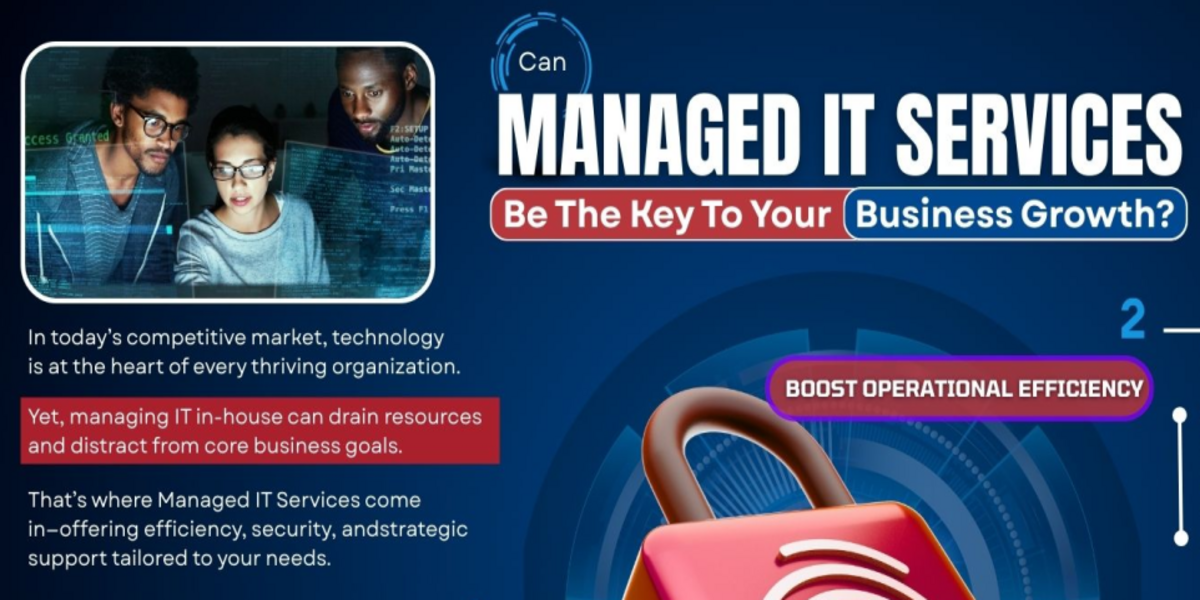We’re in the thick of the digital age, where data is the lifeblood of any organization. From financial records and customer information to intellectual property and marketing assets, critical business data resides in electronic formats. However, data is inherently vulnerable – a hardware malfunction, cyberattack, or even human error can lead to devastating data loss. This is where robust data backup solutions come into play.
This blog guides you through the world of advanced data backup solutions, equipping you with the knowledge we have, as Managed IT Services Providers, to safeguard your business against data loss. By understanding the importance of data backup and recovery and exploring the latest advancements in backup technology, you can ensure your valuable data remains secure and readily recoverable in the event of an unforeseen incident.
Understanding Data Backup Solutions and Recovery
Data backup refers to the process of creating copies of your electronic data and storing them in a separate location. This ensures that even if the original data becomes inaccessible due to hardware failure, software corruption, or other threats, you can restore it from a backup copy.
Having a reliable data backup and recovery strategy is paramount for several reasons. First, it minimizes downtime and ensures business continuity in the event of a data loss incident. By quickly restoring your data from a backup, you can resume operations promptly and minimize disruption to your business.
Second, data backups provide a critical layer of protection against cyber threats like ransomware attacks. Ransomware encrypts your data, rendering it inaccessible unless a ransom is paid. However, if you have a recent and uninfected data backup, you can restore your files without succumbing to extortion demands.

Finally, data backups can also be helpful in complying with various industry regulations that mandate data retention for specific periods.
Data loss can occur due to a variety of factors, including:
- Hardware Failure: Physical damage to hard drives, servers, or other storage devices can lead to permanent data loss.
- Software Corruption: Software malfunctions or errors can corrupt your data files, rendering them unusable.
- Human Error: Accidental deletion, file overwrites, or formatting mistakes can all contribute to data loss.
- Cyber Security Threats: Lack of Cyber Security Servicesand malicious cyberattacks like ransomware or malware infections can encrypt or delete your data.
By implementing advanced data backup solutions, you can mitigate these risks and ensure your business remains protected.
In the next section, we’ll explore some of the latest advancements in data backup technology, empowering you to choose the most suitable solution for your specific needs.
Safeguarding Your Business from All Angles
Traditional data backup methods, such as backing up data to external hard drives or tapes, can be cumbersome and offer limited protection. Thankfully, advancements in technology have led to the development of a new generation of advanced data backup solutions that provide superior security, scalability, and ease of use. Here, we explore some of the most popular options:
Cloud-Based Data Backup Solutions: Embracing Scalability and Accessibility
Cloud-based data backup solutions leverage the power of cloud storage to securely store your backed-up data off-site.
This offers several advantages:
- Scalability: Cloud storage offers virtually unlimited scalability, allowing you to easily back up growing volumes of data. As your business expands, your cloud storage capacity can seamlessly scale alongside your needs.
- Accessibility: With cloud-based backups, your data can be accessed from anywhere with an internet connection. This facilitates remote data recovery and simplifies disaster recovery efforts.
- Automatic Backups: Cloud backup solutions can be configured for automatic backups, ensuring your data is continuously protected without manual intervention.
- Disaster Recovery: Cloud backups provide a reliable off-site copy of your data, safeguarding it from physical disasters like fire, flood, or theft that could impact your on-premises infrastructure.
- Security: Reputable cloud storage providers offer robust security features like encryption and access controls to ensure your data remains secure in the cloud.
Hybrid Backup Solutions: The Best of Both Worlds
Hybrid backup solutions combine the benefits of on-premises backups with the scalability and accessibility of cloud backups. This approach involves backing up your data to both local storage devices and cloud storage.
Dual Protection: Hybrid backups offer an extra layer of security, as your data is protected even if one storage location experiences an issue. For instance, a local backup can serve as a quick recovery option for minor incidents, while the cloud backup offers a secure off-site copy for more significant data loss events.

Flexibility: Hybrid solutions allow you to tailor your backup strategy based on your specific needs. You can prioritize local backups for critical data requiring faster recovery times while backing up less time-sensitive data to the cloud for cost-effective long-term storage.
Continuous Data Protection (CDP): Real-Time Data Recovery
Continuous Data Protection (CDP) offers real-time data protection, ensuring minimal data loss in the event of an outage or disaster.
Here’s how it works:
- Real-Time Monitoring: CDP solutions continuously monitor your data and create copies at regular intervals, typically measured in seconds or minutes. This ensures you always have a near-instantaneous copy of your data available for recovery.
- Minimal Data Loss: Due to the frequent backup intervals, CDP minimizes potential data loss. In the event of a system failure, you can recover your data to a point just moments before the incident occurred.
- Ideal for Critical Applications: CDP is particularly beneficial for businesses that rely on real-time data access, such as financial institutions or healthcare providers. Even a brief data loss can have significant consequences in these industries, and CDP minimizes the risk of such occurrences.
Disaster Recovery as a Service (DRaaS): Comprehensive Disaster Recovery
Disaster Recovery as a Service (DRaaS) offers a comprehensive disaster recovery solution. It goes beyond data backup and encompasses replicating your entire IT infrastructure, including applications, servers, and data, to a cloud-based environment.
Rapid Recovery: In the event of a major disaster that renders your on-premises infrastructure unusable, DRaaS allows you to quickly failover to your cloud-based environment. This minimizes downtime and ensures business continuity during unforeseen events.
Reduced Costs: DRaaS eliminates the need for significant upfront investments in secondary infrastructure for disaster recovery purposes. You only pay for the cloud resources you utilize when needed, making it a cost-effective solution for businesses of all sizes.
Managed Service: Managed DRaaS solutions typically include ongoing management and maintenance of your cloud-based environment by a Managed IT Services Provider. This frees up your IT resources to focus on core business functions.
Choosing the Right Data Backup Solution
The ideal data backup solution for your business depends on your specific needs, budget, and data security requirements. A Managed IT Services Provider can assess your IT infrastructure and data landscape to recommend the most suitable data backup strategy, combining elements from these advanced solutions to create a comprehensive and secure backup plan.
In the next section, we’ll explore some key considerations when implementing these advanced data backup solutions to ensure optimal data protection for your business.

Partnering for Success: Managed IT Services Providers
Choosing and implementing the right advanced data backup solution is crucial for safeguarding your business against data loss. A recent study published in the International Journal of Intelligent Systems and Applications in Engineering (IJISAE) emphasizes the importance of integrated solutions for database backup, recovery, conversion, and encryption capabilities, highlighting the need for a comprehensive approach to data backup that goes beyond simply storing data copies.
Managed IT Services Providers like Microsys possess the expertise and resources to navigate the complexities of advanced data backup solutions.
Here’s how partnering with us can empower your business:
- Expert Guidance: Managed IT Services Providershave a deep understanding of various data backup technologies, including cloud-based backups, hybrid solutions, and CDP. They can assess your specific needs and recommend the optimal solution for your business.
- Seamless Implementation: Implementing advanced data backup solutionscan be complex. Microsys can handle the entire process, from initial configuration to ongoing monitoring and maintenance.
- Data Recovery Expertise: Data recovery situations can be stressful. Microsys boasts a team of experienced IT professionals skilled in data recovery techniques, ensuring a smooth and efficient retrieval process if an incident occurs.
- Proactive Management: Managed IT Services Providerscan monitor your backups and proactively identify potential issues. This ensures your data backups remain functional and readily available for recovery when needed.
By bringing a Managed IT Services Provider on board, you gain access to the expertise and resources needed to successfully implement and manage advanced data backup solutions. This empowers your business with peace of mind, knowing your valuable data is secure and recoverable in the event of any unforeseen circumstance.

Optimizing Your Defense Strategy
Having robust data backup solutions in place is a critical first step in safeguarding your business against data loss. However, simply implementing advanced backup technologies isn’t enough. To ensure optimal data protection and recovery capabilities, it’s essential to follow best practices for data backup and recovery.
Here are some key recommendations to enhance your data backup and recovery strategy:
- The 3-2-1 Backup Rule: This industry standard emphasizes creating at least three copies of your data, storing them on two different media types (e.g., local storage and cloud storage), and keeping one copy off-site for disaster recovery purposes.
- Regular Backups: Establish a consistent backup schedule based on your data criticality. For crucial data that changes frequently, consider real-time backup solutions like Continuous Data Protection (CDP).
- Backup Rotation: Implement a backup rotation strategy to ensure you have backups from various points in time. This allows you to recover data to a specific point in case of incidents like ransomware attacks that may corrupt recent backups.
- Encryption: Encrypt your backups to add an extra layer of security, especially for sensitive data like customer information or financial records. Encryption renders your data unreadable even if unauthorized individuals gain access to your backups.
- Testing and Monitoring: Regularly test your backups to ensure they are functional and readily recoverable. This involves simulating a data loss scenario and attempting to restore your data from backups. Additionally, monitor your backup systems for errors or warnings that may indicate potential issues.
- User Training: Educate your employees on proper data backup practices. This can include training them on how to identify and avoid phishing scams that could lead to data loss, as well as reminding them to save their work regularly.
- Documentation: Maintain clear and up-to-date documentation for your data backup and recovery procedures. This documentation should outline your backup schedule, backup locations, and data recovery steps. Having readily available documentation facilitates a smoother and faster recovery process during a crisis.
Regular testing and monitoring are crucial aspects of any successful data backup strategy. Just like a fire alarm, if you don’t test your backups regularly, you may discover they aren’t functioning properly when you need them most. A Managed IT Services Provider can assist you with establishing a comprehensive testing and monitoring program, ensuring your data backups remain reliable and recoverable.

Safeguarding Your Business with Confidence
Let’s face it, our businesses operate in a digital world, and our data is what keeps them alive. A data loss incident can have devastating consequences, leading to downtime, financial losses, and reputational damage. By implementing advanced data backup solutions and adhering to best practices for data backup and recovery, you can significantly mitigate these risks and ensure business continuity in the event of an unforeseen event.
Don’t wait until disaster strikes to prioritize your data protection. Partnering with a Managed IT Services Provider like Microsys can empower your business with the expertise and resources needed to develop and implement a comprehensive data backup and recovery strategy, giving you peace of mind and the confidence to know your valuable data is secure.
Contact Microsys today to discuss your data protection needs and take a proactive approach to safeguard your business against data loss. You can also schedule a consultation to learn how our Cyber Security Services, HRMS – Human Resource Management Systems, and Sage Consultants can take your business to the next level.



